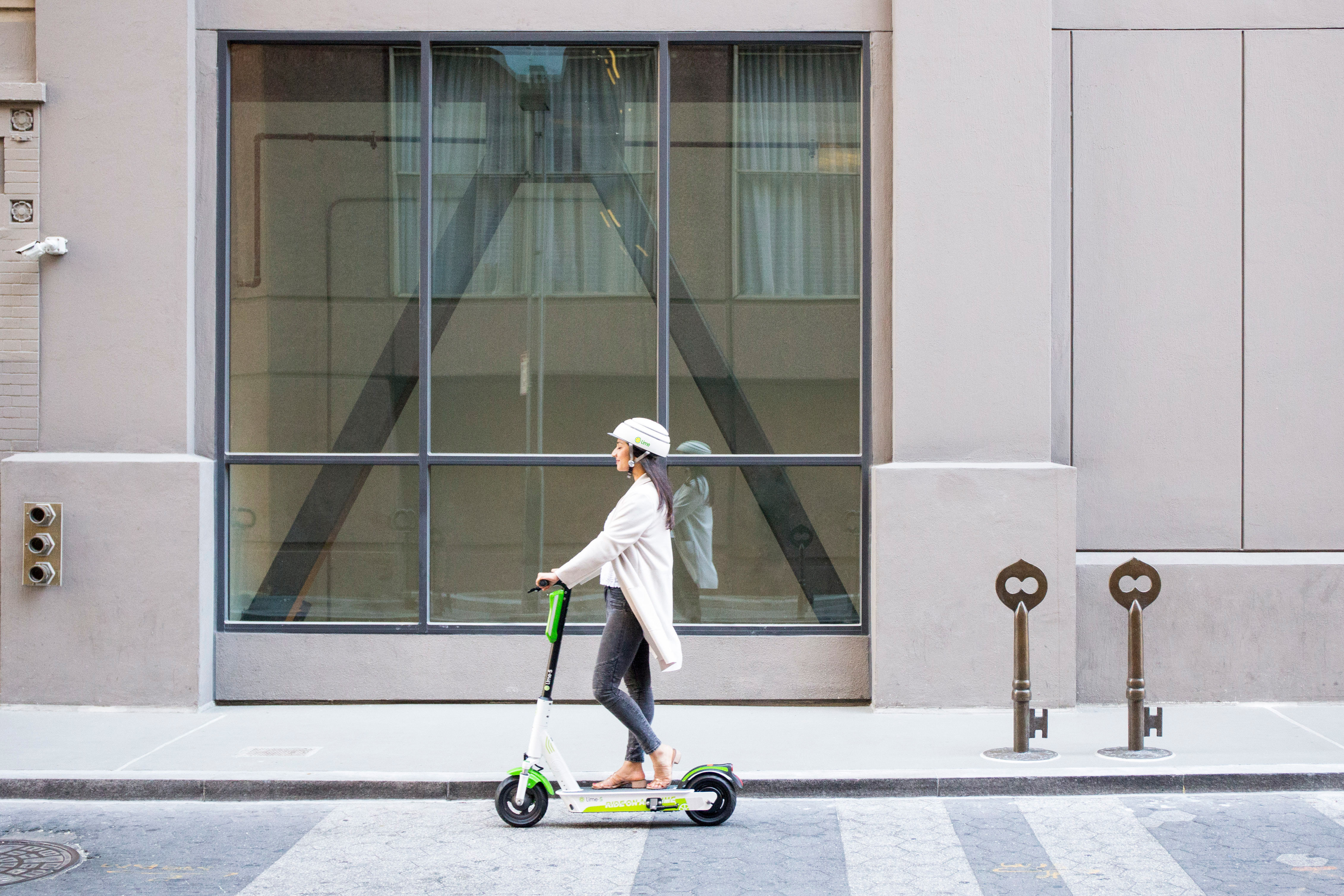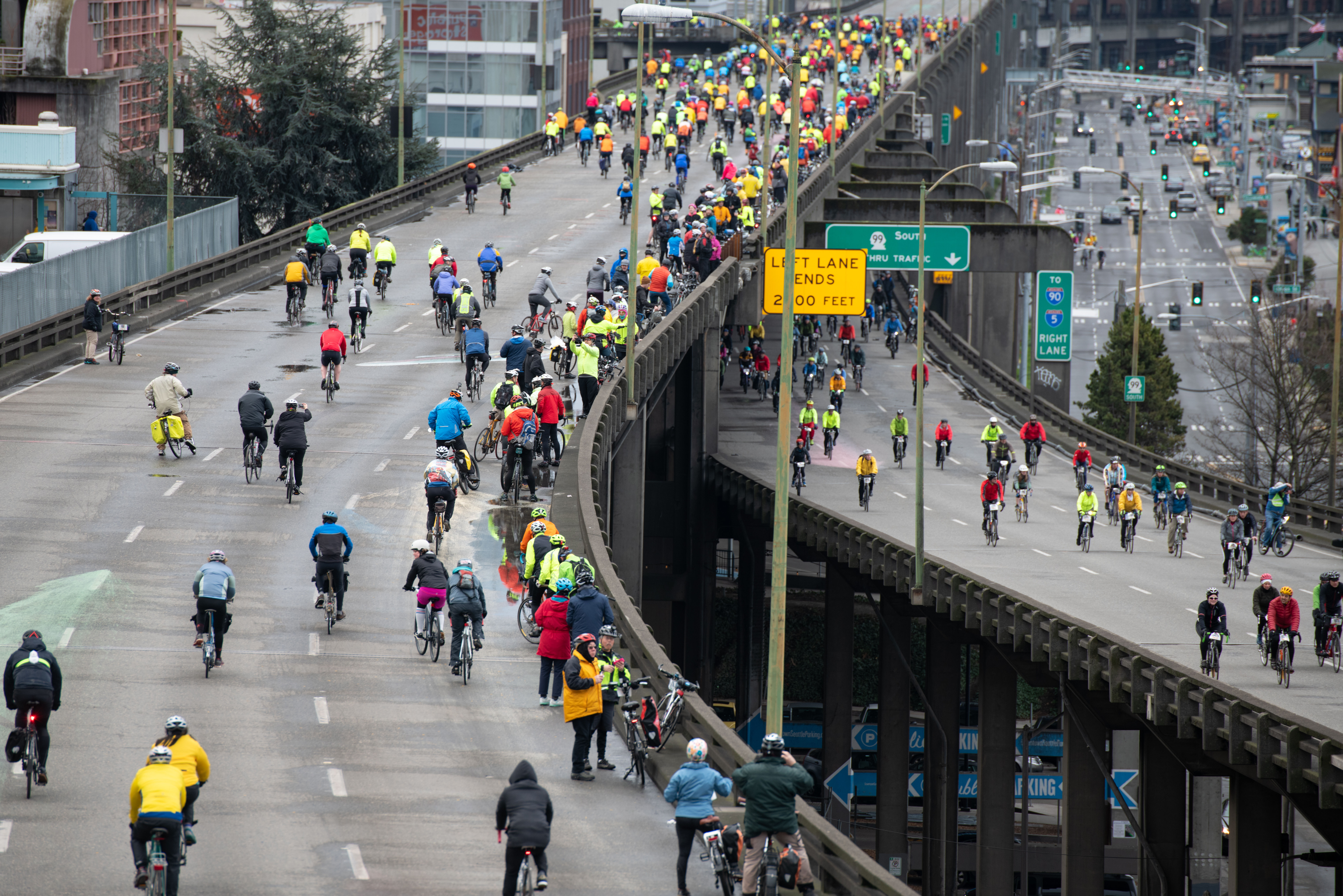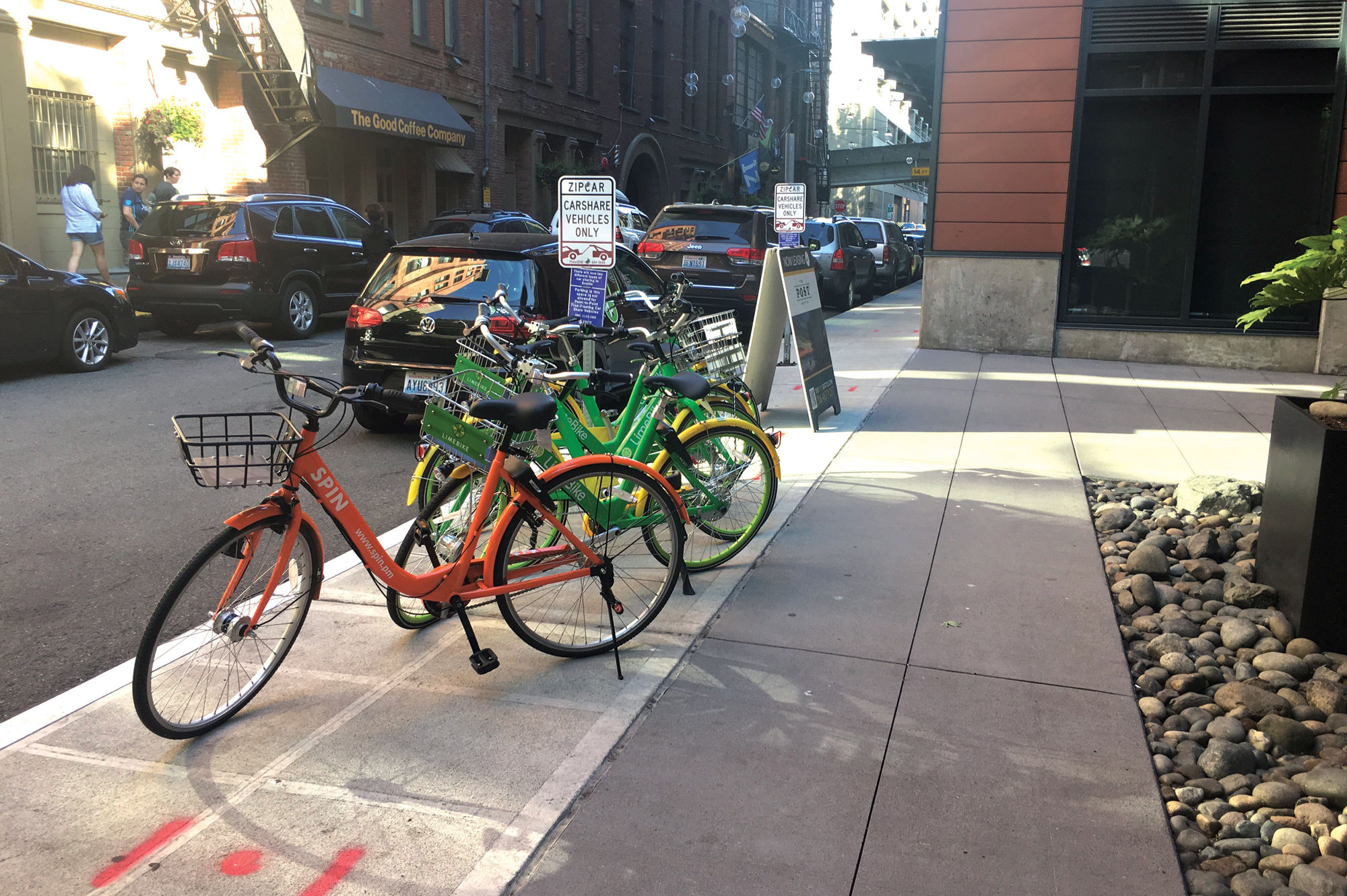Bikesharing: Helmet Problem (Sorta) Solved

The city council's transportation committee offered its "conceptual approval" to a new bikesharing program yesterday; the program, which will open around May of next year, will include about 500 seven-speed bikes (to deal with Seattle's hills, the bikes will have more speeds than the typical bikeshare's two) at about 50 kiosks in downtown, South Lake Union, Capitol Hill, and the University District.
The council still has to approve legislation giving Puget Sound Bike Share the authority to install its bike and helmet kiosks on city sidewalks. A yearly membership would cost around $85; a daily membership would be about $8, and helmet rentals would cost $3.
Although council members expressed some concerns about the location of the bikeshare kiosks (the initial program, much like Car2Go, won't reach beyond the center city and the U District, so Ballard, West Seattle, and the entire South End are out of luck for now), they ended up approving the idea unanimously, in part because, as committee chair Tom Rasmussen noted, Puget Sound Bike Share says it has figured out how to deal with Seattle's mandatory helmet law, without requiring people to share grungy helmets—or forcing people to rent helmets when they already have their own.
Basically, it'll work like this: If you need a helmet, you'll punch a button when you rent a bike telling the bike machine that you need to use the helmet kiosk. Then you'll pay a separate fee to get a helmet from a nearby machine. When you return the bike at the end of your ride to any bikesharing kiosk, you'll drop your helmet into a return box; bikesharing company staffers will pick the helmets up at the end of the night and take them back to HQ for "sanitization" and inspection for damage.
I'm really excited about bikesharing. I think it's a great solution for people who need to make short trips without a car. But the helmetsharing aspect of the program still strikes me as problematic. Here's why.
First, it costs extra money, creating a financial disincentive for people who don't carry helmets with them at all times to give bikesharing a try.
Infrastructure and public education, which increase cycling, which leads to safety in numbers—is the most effective factor in preventing cyclist injuries.
Second, about that "inspection." How will it work? If the person who just used your helmet took a spill, that helmet may not protect you as much as you think.
Third, will people really trust that a helmet used by hundreds of strangers is truly "sanitary"? Puget Sound Bike Share director Holly Hauser says the helmets will be washed with "a combination of warm water and soap and sprayed with disinfectant," but I wonder if that'll be enough to transcend the ick factor of using what was, just recently, someone else's sweaty helmet.
The solution is obvious: Put Seattle on par with other major cities that have implemented successful bikesharing programs have (New York, D.C., Portland), and eliminate Seattle's mandatory helmet law.
Although helmets undoubtedly save lives in accidents and collisions in which a rider lands hard on his or her head, they also decrease safety, by encouraging drivers to drive more carelessly (interestingly, helmets don't appear to lead to more reckless behavior among cyclists); and by creating a barrier to entry for riders. Infrastructure and public education, which increase cycling, which leads to safety in numbers—is the most effective factor in preventing cyclist injuries.




